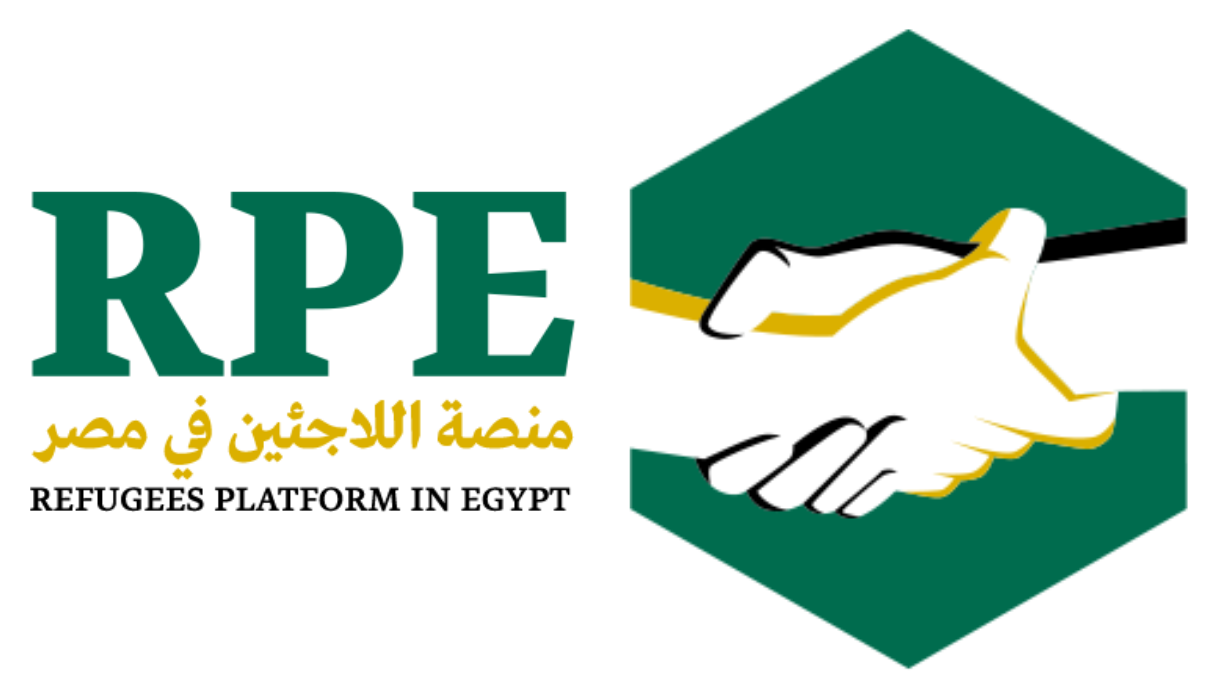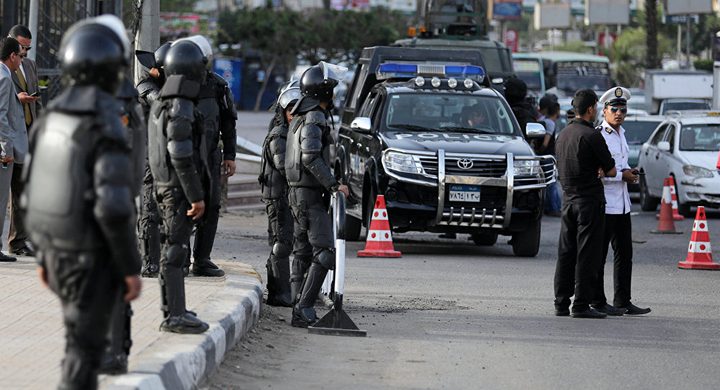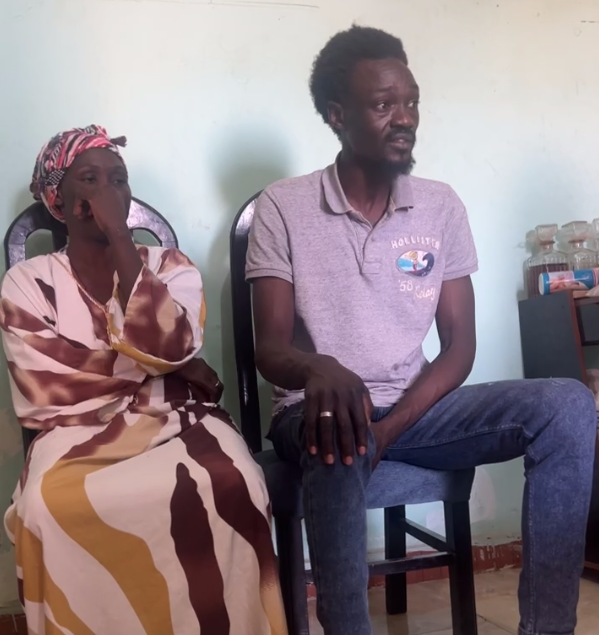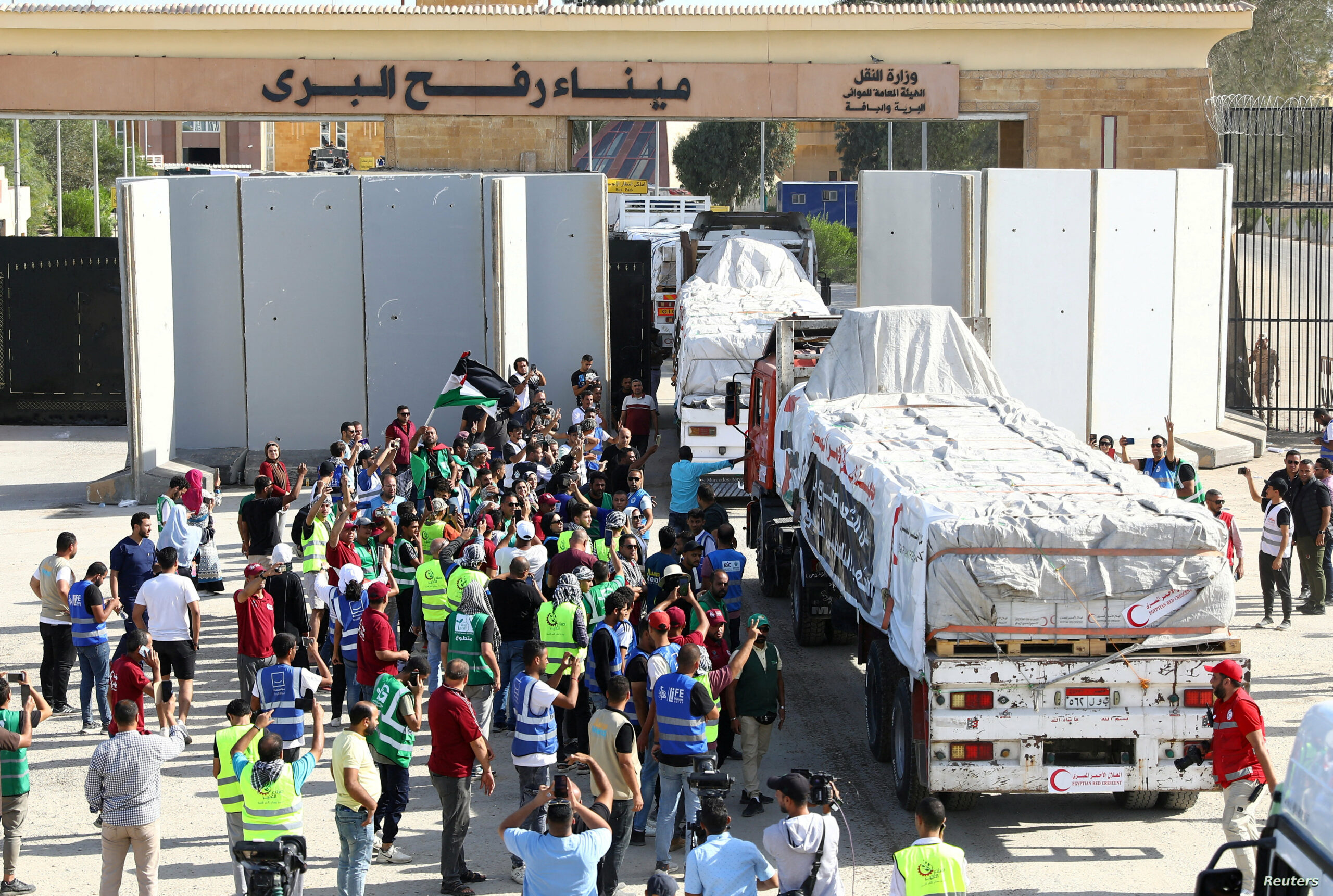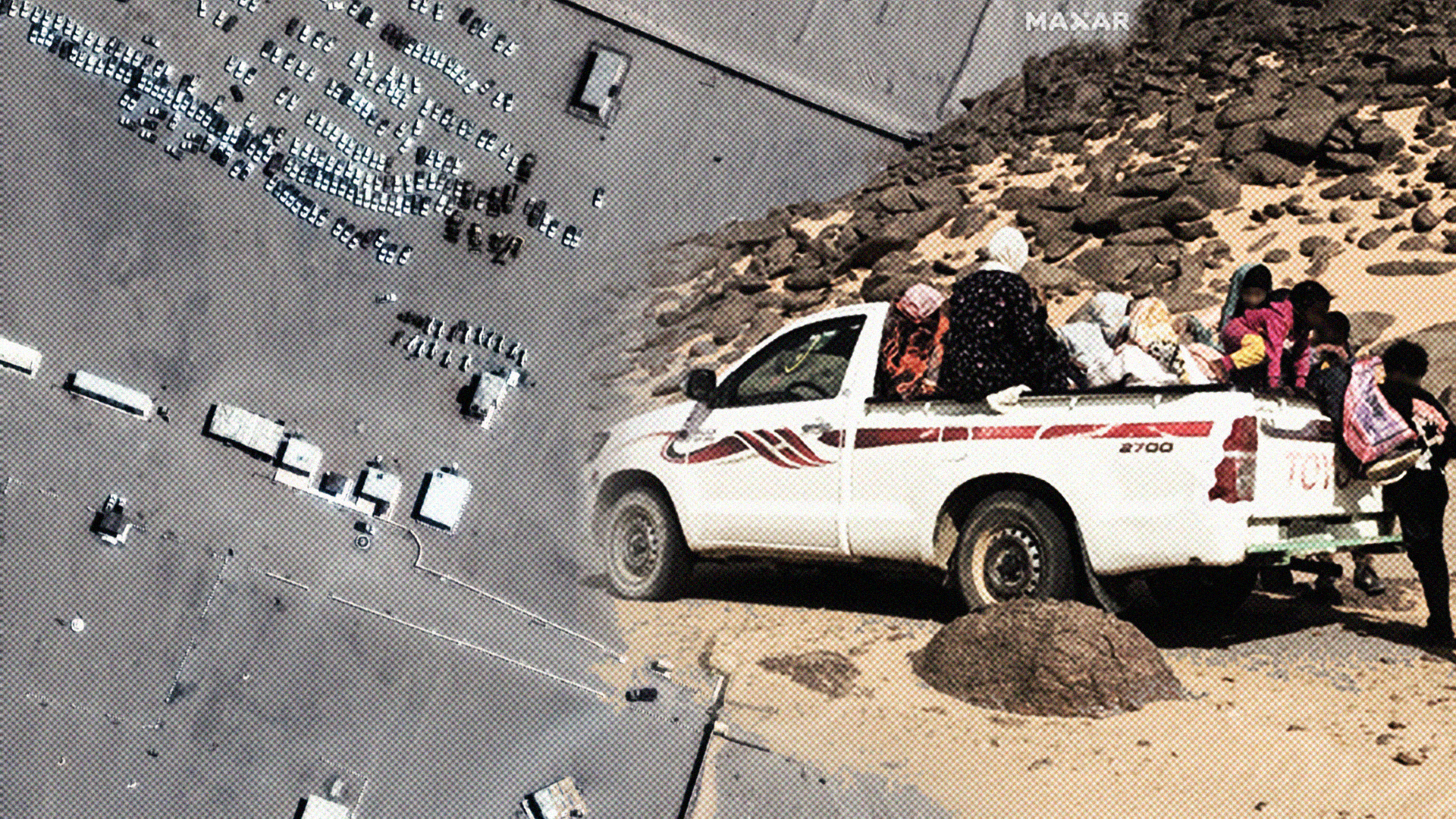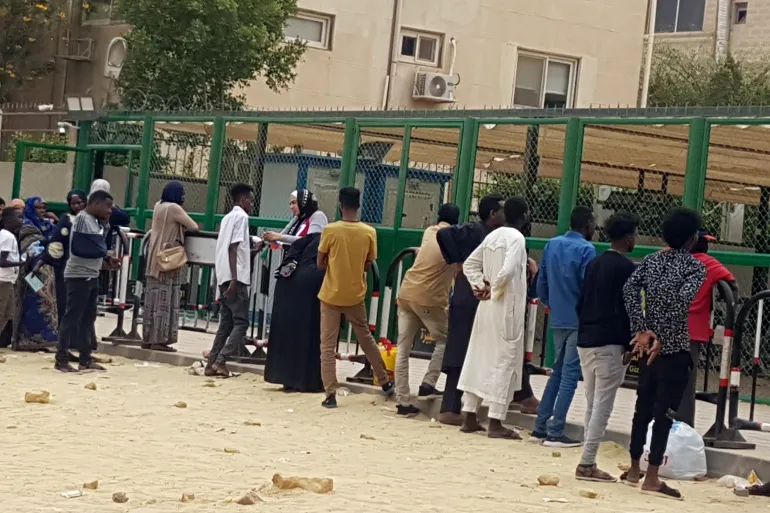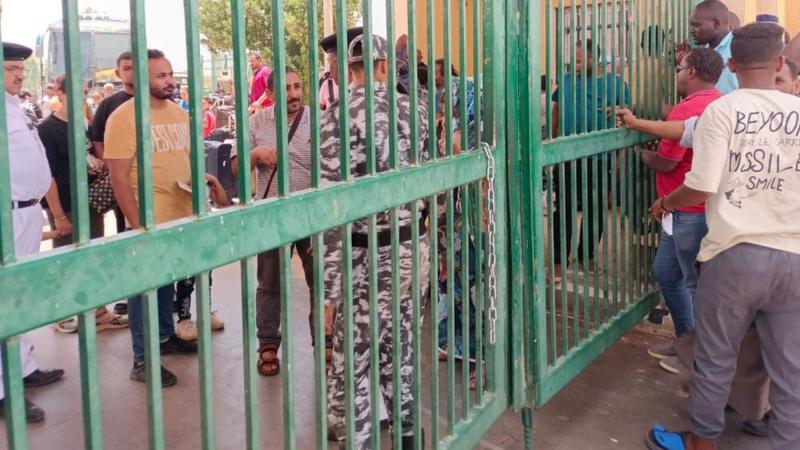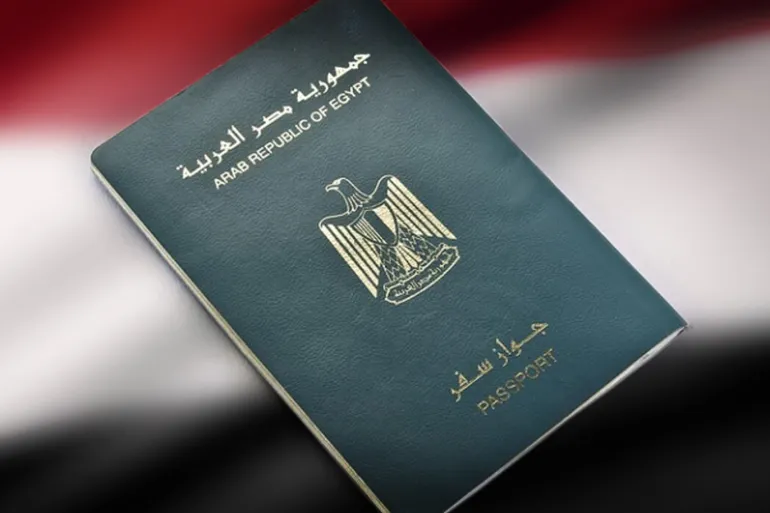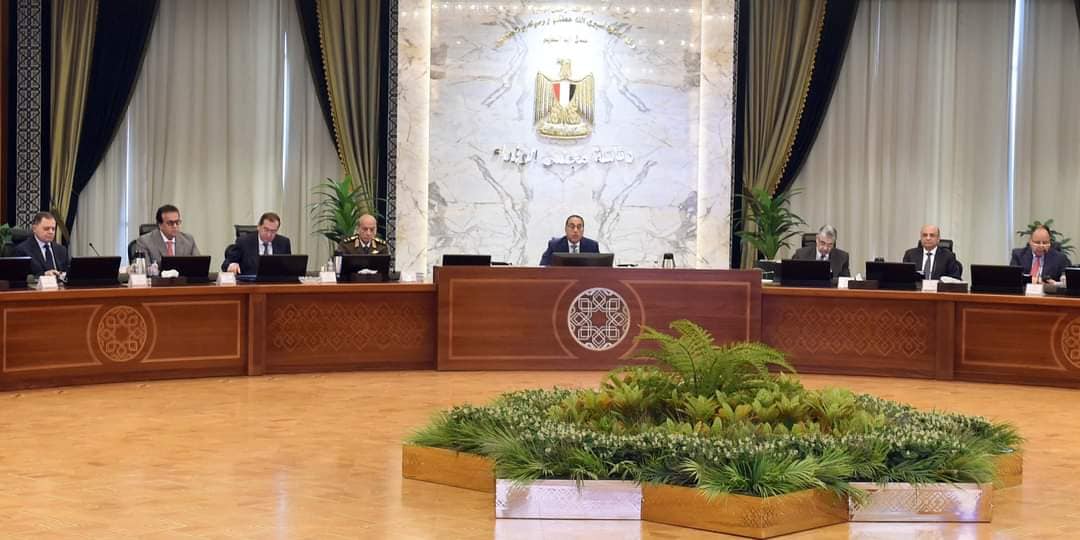Over the past few weeks, the Refugees Platform in Egypt (RPE) has documented cases of arrest, detention, and forced deportation of persons on the move in various governorates in Egypt, including migrants, asylum seekers, and refugees residing in Egypt.
According to documented testimonies, these arrests target individuals based on their identity or skin color, during which the detainees are asked to present their residence permits, and in some cases, hand their personal phones in for search and examination.
We have received reports from various areas within and outside Cairo regarding the arrest and detention of individuals holding identity documents and residence permits in Egypt. Around the same time, human rights groups documented the arrest of individuals while on their way to their registration appointments at the United Nations High Commissioner for Refugees (UNHCR).
In light of this situation, the RPE offers the following advice to help you avoid suspicion and guidance on what you should do in case you, or any family members, are arrested or detained.
To avoid arrest and detention -as much as possible- please follow the following advice:
- Avoid crowded main areas if possible.
- Avoid Egyptian political gatherings and protests completely.
- Do not stray far from your place of residence or work, especially at night.
- Keep a valid form of identification on you at all times (such as your UNHCR card or passport) inside a pouch with your name and phone number written on the inside in case it gets lost.
- Keep an electronic copy of your identification documents with your family or friends.
- Keep your valid residence permit card on you at all times, along with proof of renewal if applicable.
- If you have recently arrived in Egypt and have scheduled an appointment for registration with the UNHCR, which requires movement, especially from one governorate to another or commuting a long distance, please keep proof of your appointment. You can also print it and carry it on you while on the move to reach the UNHCR office.
- To avoid mobile phone inspections, ensure that there is nothing on your mobile phones that could raise the police’s suspicion. We also advise you to not keep your photos and personal files on your mobile phones.
In the event of being arrested by members of the police or Egyptian security services, we ask you to follow the following instructions:
- Remain calm and try to understand the reason for the detention.
- Keep the phone numbers of relatives, friends, and attorneys (if you have one in Egypt) on you at all times.
- Message a family member or friend and inform them of your arrest. If possible, share the location of your detention.
- If you do not speak Arabic, please request to use a translator on your phone to explain your situation to the police officers and also to understand the reason behind your arrest from them.
In case you are escorted to a police station and detained:
- In case you are escorted to the police station, you may inquire about the reason for your detention.
- During police interrogation, make sure to read the investigation report and your statements before signing, if possible.
- During the interrogation, try not to panic as much as possible.
- It is within your rights to answer with “ I do not know” and “I do not remember” if you do not know or recall something regarding the subject of the question asked.
- When appearing before the Public Prosecution, it is within your rights to request an attorney to attend the interrogation. It is also within your rights to request the presence of your personal attorney (if you have one in Egypt) and mention their name directly during the investigation.
- It is also within your rights to request access and read your statements and the charges against you when appearing before the Public Prosecution. It is also your right to request to read them carefully as much as possible.
- If you are registered with the UNHCR as a refugee or asylum seeker and hold either a yellow or a blue card, you have the right to refrain from giving statements until the UNHCR attorney is present, which is something you may request directly from the investigator.
- If you have no issues and want to request your embassy’s attorney, you have the right to refrain from giving any statements until the presence of your embassy’s attorney. You may request this directly from the investigator.
- During the interrogation, try to remain calm as much as possible and listen carefully to all the questions directed at you.
- Do not admit to any action you have not committed. It is within your rights to refuse to sign statements that contradict your own.
- When interrogated before the Public Prosecution, it is within your rights to mention any violations you have been subjected to by the authorities. It is also your right to request the inclusion of said violations in the investigation report.
- At the conclusion of the interrogation before the Public Prosecution, the investigator may ask you if you have any additional statements. At that point, you may request to include the location of the detention facility where you are being held and clarify any violations you are facing or concerns you may have. Additionally, you may document your testimony if you have been subjected to forced disappearance.
- If you do not speak Arabic or find it difficult to understand or give your statements in Arabic, you have the right to request a translator for the language you speak.
In case the person who has been detained or arrested is a family member:
- If the arrested or detained person is registered with or has a registration appointment with the UNHCR, please contact the UNHCR and report the arrest and detention. Include all the information you have regarding the location and cause of detention or the place of disappearance.
- If the person is not registered with the UNHCR, please contact their country’s embassy if possible, and inform the embassy of all information you have regarding the location and conditions of the arrest, detention, or disappearance
- If you have a residence permit, you may hire an Egyptian attorney to take the necessary measures to disclose the detainee’s fate, attend interrogations with them, and visit them in their detention facility.
- Contact civil society organizations working on refugee and migrant issues, especially those offering legal support, to inquire about the possibility of legal assistance.
The RPE works on documenting arrests, detentions, and the legal and humanitarian conditions of persons on the move in Egypt. In case you or any of your family members are arrested, detained, subjected to forced disappearance or deportation, you can share your testimony and related information through the following form:
https://docs.google.com/forms/d/e/1FAIpQLSf0YphwLdc3nGA2AdoOTQ33UmXYNVTySLnG3neh5kpt7Dqtmg/viewform
If you have any legal inquiries related to detention and forced deportation, you can fill out the following form and our legal team will get in touch with you:
https://rpegy.org/en/legal-advice/
